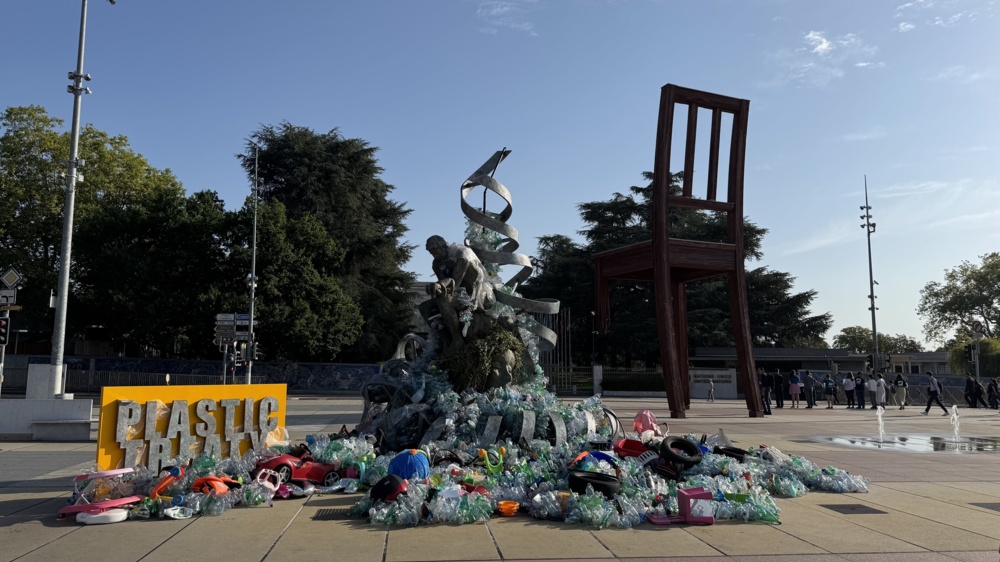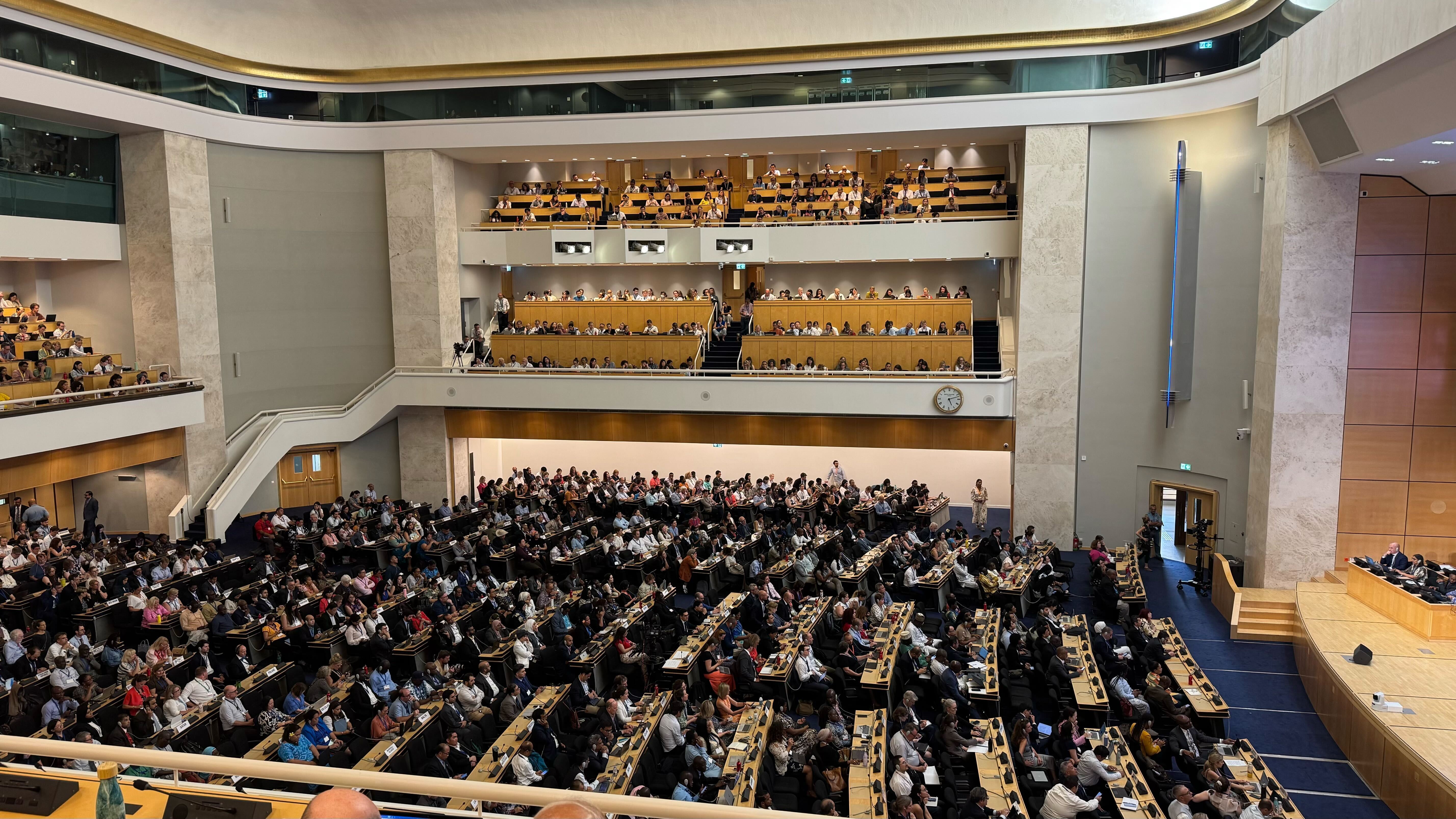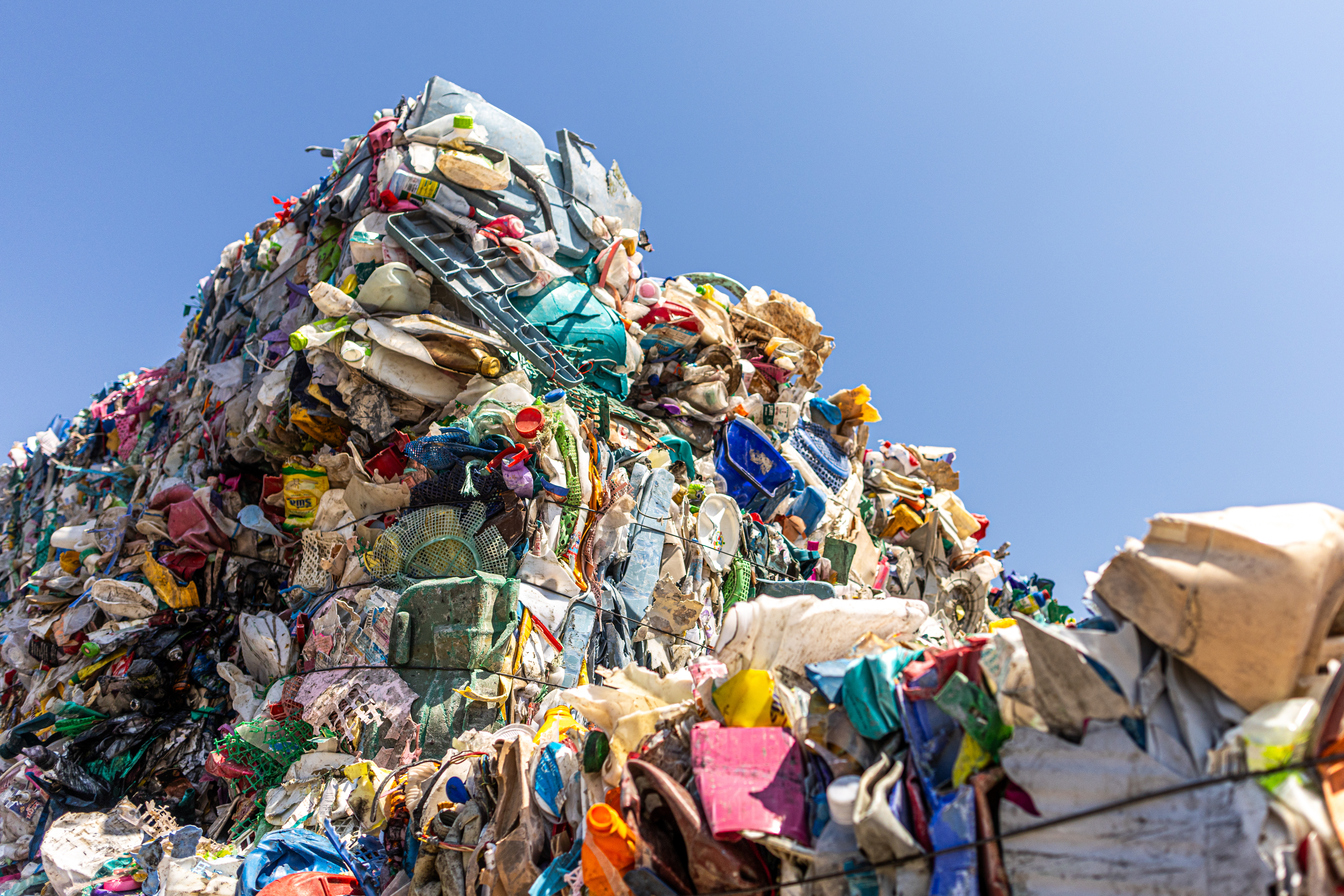
High-ambition nations stand firm, reject weak plastics treaty pushed by petrostates: press release
Geneva, 15 August 2025
Negotiations for a Global Plastics Treaty have adjourned without an agreement, as high-ambition nations, reflecting the large majority represented at the meeting, refused to accept a weak text that would have locked in the global plastics crisis. They worked until the very end to secure a strong treaty, says the Environmental Justice Foundation (EJF), but obstruction from a small, powerful group of oil- and plastic-producing nations, aided by record numbers of fossil fuel lobbyists, prevented progress.
The Chair’s latest text, presented in the early hours of the morning, failed to address the key drivers of plastic pollution. It contained no measures to reduce plastic production, no strong controls on hazardous chemicals in plastics, and no guarantees for toxic-free reuse, refill, and repair systems. Without upstream measures and binding targets, the treaty would have been powerless to protect people and the planet.
The overwhelming majority of nations in Geneva pushed for real solutions to the plastics crisis. 57 countries called for toxic-free reuse, refill and repair systems; 89 demanded cuts to plastic production; 120 supported strong controls on chemicals; another 120 backed voting in the Conference of the Parties to break deadlock; and 130 championed a dedicated article on health. From Small Island Developing States to many in Africa, Asia, Latin America and Europe, these countries came ready to deliver a science-backed, justice-based, enforceable treaty, and refused to accept a deal that would fall short of protecting people and planet.
Salisa Traipiptisirwat, EJF Senior Campaigner and Southeast Asia Plastics Projects Manager, said: “Although these negotiations have ended with no treaty being agreed, this is still a better outcome than a weak treaty. High ambition countries stood firm against petro-states and bad faith actors determined to derail meaningful progress. While not the result we wanted, this allows us to regroup and work towards an ambitious treaty that truly seeks to protect people and planet.”
The overwhelming majority of nations, from Small Island Developing States to many African, Asian, Latin American and European countries, came to Geneva ready to deliver a treaty that addresses plastic pollution across its full life cycle. EJF is calling on all high-ambition leaders, particularly in the EU and the UK, to show strong leadership in the next phase, rallying this majority to demand a treaty that:
Cuts plastic production in line with scientific evidence on planetary limits.
Controls chemical additives throughout the plastic life cycle.
Enshrines binding global targets and measurable milestones.
Ensures fair participation for frontline communities, Indigenous peoples, and civil society.
Mandates scaling and preservation of toxic-free reuse, refill and repair and other reduction-enabling systems, taking into account Indigenous knowledges, ensuring that these systems protect human health.
Steve Trent, EJF CEO and Founder, said: “The global community demands far stronger action than that proposed in the wholly inadequate, compromised text presented by the Chair to delegates in the early hours this morning.”
“But let's be clear: this failure does not reflect the vision, ambition and efforts of the overwhelming majority of nations that came to Geneva ready to act. It was the work of a small but powerful group of oil and plastic-producing nations, aided by an army of industry lobbyists putting short-term profits ahead of the health and well-being of our global community. This minority group of interests blocked binding targets, refused to curb plastic production and used the negotiations to strip away the ambition our world desperately needs. But we must not be fooled into thinking that such a weak Treaty is an option, nor that there are no alternatives.”
“We call for, demand, a new negotiation, chaired with the vigour and vision that reflects the high ambition of the Small Island Developing States, the vast majority of African nations, the Asian States that have repeatedly called for better and more; which responds to the high ambition from Latin America; which reflects the clamour for action in Europe and from the EU and across the overwhelming majority of nations globally. Now is the time for leadership, multilateralism and action. We call on States to redouble their efforts to demand and then deliver a legally binding plastics Treaty that is fit for purpose and will effectively combat the plastics crisis.”
ENDS
Notes to editors
About EJF
Our work to secure environmental justice aims to protect our global climate, ocean, forests, wetlands, wildlife and defend the fundamental human right to a secure natural environment, recognising that all other rights are contingent on this. EJF works internationally to inform policy and drive systemic, durable reforms to protect our environment and defend human rights. We investigate and expose abuses and support environmental defenders, Indigenous peoples, communities, and independent journalists on the frontlines of environmental injustice. Our campaigns aim to secure peaceful, equitable and sustainable futures. Our investigators, researchers, filmmakers, and campaigners work with grassroots partners and environmental defenders across the globe. For more information or to organise an interview with one of our team, please contact media@ejfoundation.org.
SIGN UP FOR OUR EMAILS AND STAY UP TO DATE WITH EJF

